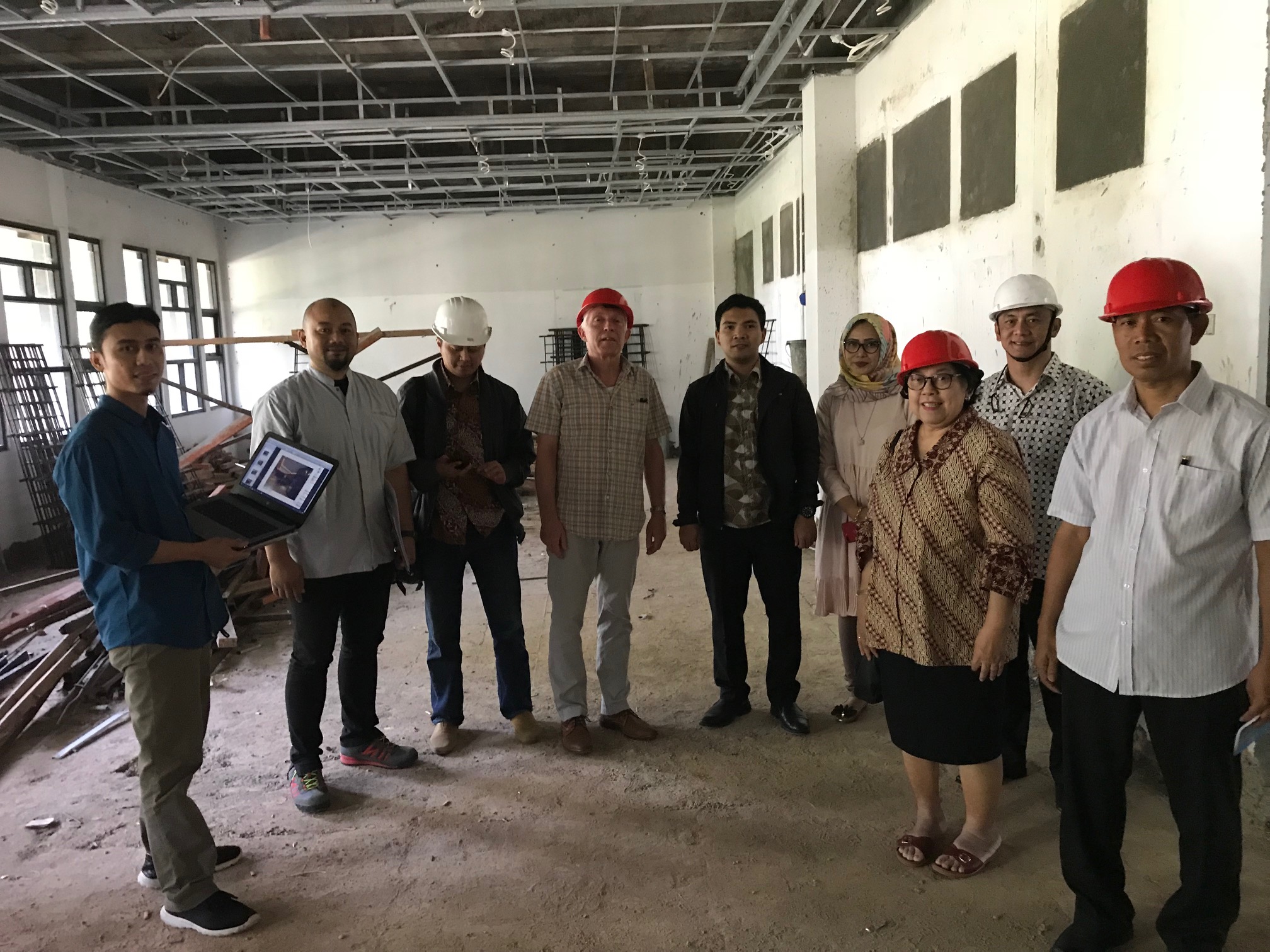Mundo projects in Indonesia will be completed next year
Mundo director Han Aarts visited the Faculty of Law of Universitas Padjadjaran (UNPAD) in Bandung, Indonesia and with Lemdiklat, the training institute of the Indonesian police in Jakarta in June to discuss the planning of the final year. Both projects are funded by the NICHE programme of the Netherlands Ministry of Foreign Affairs.
Strengthen education, research and Problem-Based Learning
The project in Bandung aims to strengthen education and research on international law at the Faculty of Law of UNPAD. This is done by involving expertise from the Faculty of Law at UM. As a result quite some UM FL staff have been visiting UNPAD in the last three years. The project also comprises the introduction of Problem-Based Learning at UNPAD. To this end, as part of the project one of the buildings of UNPAD Faculty of Law is completely refurbished to accommodate small group tutorials. The picture shows the progress of the construction activities.
Blended learning
With Lemdiklat, the training institute of the national police based in Jakarta, the UM is developing the capacity to offer training in blended learning formats, using electronic learning in addition to face to face training. In June Han Aarts met with the Indonesian coordinator of the project, Brigadier Budi Purwoto and his staff, at Lemdiklat Headquarters, to discuss the activities programme in the remaining project year.


Also read
-
Andrés Caceres Solari on No room for Human Rights in Gaza and Ukraine: How the Law Legitimizes Urban Devastation
Pick Our Brains Session with Andres Caceres Solari

-
AMIBM hosts the final Realise-Bio conference
The Aachen Maastricht Institute of Biobased Materials (AMIBM) hosted last week the third and final Realise-Bio annual conference, bringing together the Dutch and German bioeconomy ecosystems at the Brightlands Chemelot Campus.

-
Macrophages as key to treating liver fibrosis
Sabine Daemen is researching how certain macrophages can slow down fatty liver disease and fibrosis in order to develop new therapies.
